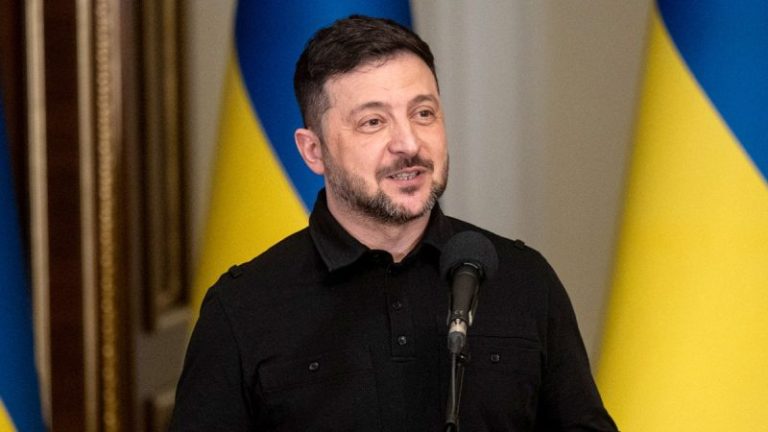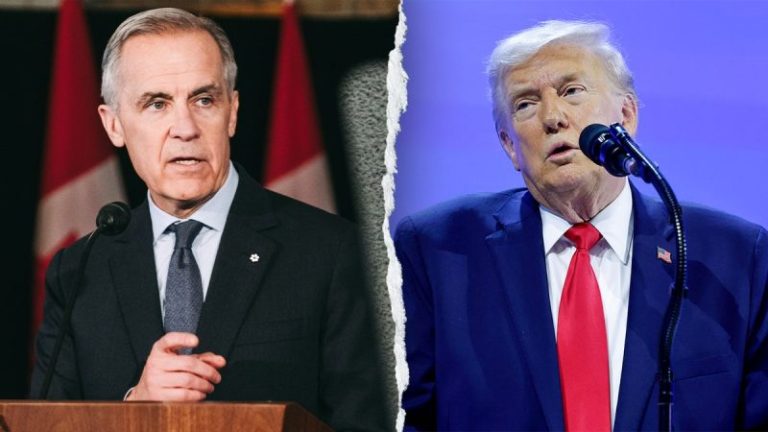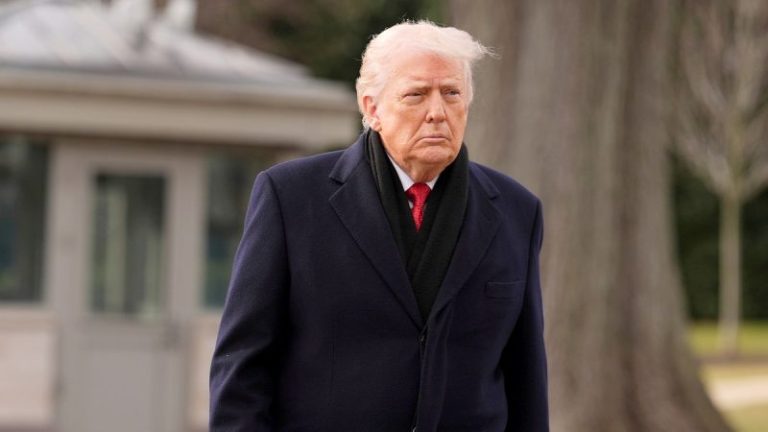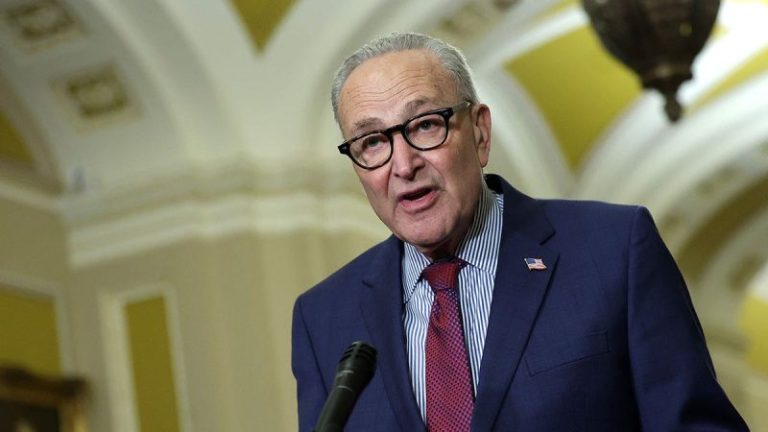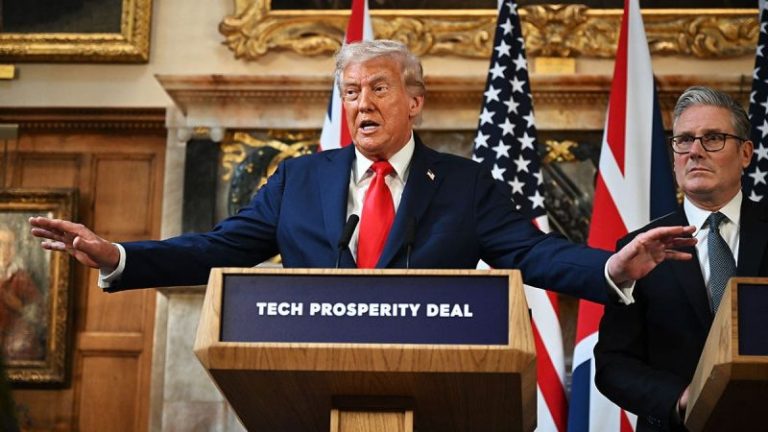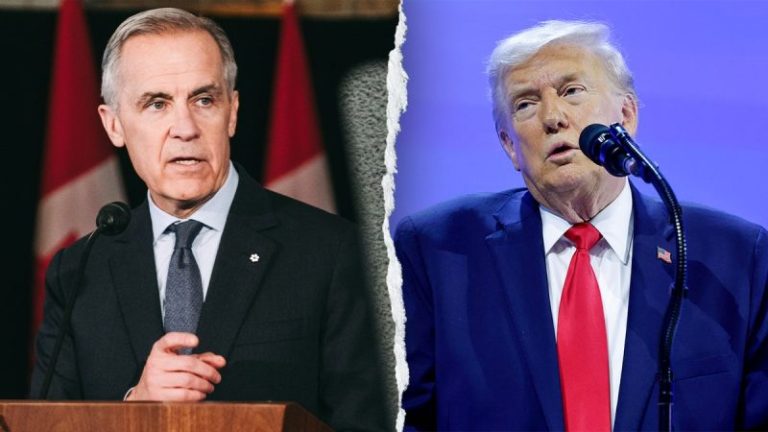Speaking to global leaders in Davos, Switzerland, Ukrainian President Volodymyr Zelenskyy delivered a blunt warning to Europe about its self-defense.
‘Europe needs to know how to defend itself,’ he said, arguing that the continent still isn’t ready to stand on its own without U.S. backing.
Zelensky’s remarks reflected a growing anxiety across Europe — that decades of reliance on American protection left the continent ill-prepared for a more dangerous era. While European countries have contributed troops, weapons and money to conflicts from Afghanistan to Ukraine, the ultimate backstop for NATO’s security has remained Washington.
President Donald Trump has openly challenged that assumption, repeatedly warning NATO allies that U.S. protection should not be taken for granted, and insisting the U.S. needed to take Greenland from Denmark
Before he ruled out the use of force to wrest control of the island, European officials had worried about a military dust-up between Western powers would mean the end of NATO.
‘Maybe we should have put NATO to the test: Invoked Article 5, and forced NATO to come here and protect our Southern Border from further Invasions of Illegal Immigrants, thus freeing up large numbers of Border Patrol Agents for other tasks,’ Trump mused on Truth Social Thursday.
Trump’s suggestion that the U.S. may not defend allies that fail to invest in their own security rattled the alliance and pushed European governments to pledge sharp increases in defense spending.
Even so, European leaders continue to acknowledge how central U.S. power remains to NATO’s defense. NATO Secretary General Mark Rutte has pointed to the American nuclear umbrella as the alliance’s ‘ultimate guarantor,’ alongside a strong U.S. conventional presence in Europe.
‘We are still having a strong, conventional U.S. presence in Europe,’ Rutte said, ‘and, of course, the nuclear umbrella as our ultimate guarantor.’
Security analysts say that long-standing guarantee shaped Europe’s choices over time.
‘For much of the post–Cold War period, it is fair to say that Europeans underinvested in defense, partly because threats were low, and partly because a series of U.S. presidents did everything they could to convince Europeans that we would stay there forever,’ Barry Posen, a professor of political science at MIT, told Fox News Digital.
‘Trump was right to argue that Europeans have been slow to fix up their forces as the situation changed — as Russia pulled itself back together and became more demanding and threatening, and as China also grew its power,’ Posen said.
But Posen warned that driving a wedge inside NATO carries risks. ‘The problem Trump faces is that ‘conditional commitments’ make challenges more likely,’ he said. ‘And then we would still have to decide what to do. As a great power, in the event of an actual challenge, we might not wish to look weak.’
Over time, those choices carried political consequences. With American power serving as the backstop, defense spending was easier to restrain than politically popular domestic subsidies such as healthcare, pensions and education, which became entrenched in European politics.
As defense demands rise, governments are running into those constraints. In Italy, officials have warned that boosting military spending to meet NATO commitments would strain an already tight budget, where pensions and social benefits account for a large share of public spending.
Germany found a way to buy time. After Russia’s invasion of Ukraine, Berlin created a €100 billion special defense fund — financed through new borrowing and kept outside the regular budget — to rebuild its military without immediately cutting other spending. The move jump-started rearmament while shielding popular social programs from near-term cuts. But the fund is temporary. Once it runs out, sustaining higher defense spending will require permanent budget decisions inside a system built around strict fiscal rules and expansive social commitments.
John Byrne of Concerned Veterans for America said Europe’s dependence on the United States runs deeper than defense budgets. Even as European governments pledge more spending, Byrne said they still lack the senior-level experience needed to run NATO operations without U.S. leadership.
‘They don’t have the experience,’ Byrne said, pointing to the fact that large, multinational military commands have overwhelmingly been led by American generals for decades. ‘That institutional knowledge still sits almost entirely with the United States.’
Byrne said that gap matters in a crisis. Running complex, coalition military operations requires years of practice at the highest levels, he said — something that cannot be fixed quickly, even with higher spending.
‘You can buy equipment,’ Byrne said. ‘You can’t instantly buy command experience.’
During his address at Davos on Thursday, Zelenskyy questioned whether Europe has the power or the will to act independently if assumptions about U.S. protection change.
‘Europe still feels more like geography, history, tradition, not a real political force, not a great power,’ Zelenskyy said.
He warned that European leaders continue to plan around expectations that may no longer hold. ‘To believe that the United States will act, that it will not stand aside and will help,’ Zelenskyy said. ‘But what if it doesn’t? This question is everywhere in the minds of European leaders.’

